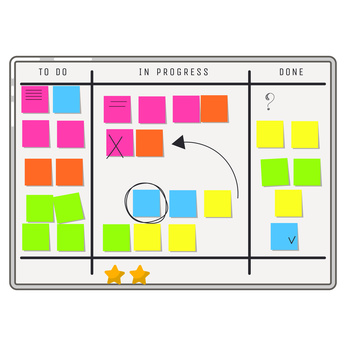Agile Methodology For Non-Tech Businesses
I am a business consultant and a Scrum CSPO (certified scrum product owner), even though I do not work exclusively with software companies. When most people think about Scrum and Agile Methodology they think about software development company. Two week sprints, independent development teams with regular deliverables and sorting out the minimal viable product to maximize results, are all beneficial things for technical companies, but guess what…non-technical companies love maximum productivity too!
There are enough perks that come from Agile to make non-technical companies take a second look at adopting the methodology.
Rapid Development – The entire premise of Agile acknowledges the fact that most businesses will never have time to complete all that they would like to, and therefore the way projects are approached and worked implementation is the fastest that is possible.
New Marching Orders – One of the biggest shared complaints from small business owners and employees is micromanagement…staff members hate managers that do it, and owners that feel micromanagement is the only way to deliver quality results resent that. Scrum clearly defines the role and responsibilities that allow teams and managers to work and be productive independently, thus eliminating the need for micromanagement. Teams are allowed the freedom to do what is needed to meet the mutually agreed upon results, while holding them accountable to a predictable schedule.
Deliverables! – With the regiment of short term Sprints (generally two weeks), something is delivered every few weeks like clockwork, instead of the endless pushing out of deadlines that result from the normal “biting-off-more-than-you-can-chew” plan. Let’s say you want to implement a new quality assurance program that will likely take a year to fully develop. Instead of the waiting until it is fully complete, using the Agile method you will get small, usable deliverables every 2-4 weeks, depending on your Sprint length.
Visually Organized – Agile defines tools they call “events” and “artifacts” that allow all team members to know what is going on, why we are doing them, and certain expectations about those events. Regardless of the project the approach and procedure are a familiar and understood by all to work at delivering results. The team has faith that committing to project will result in in a win.
Built in Innovation – One of the basic premises of Agile is that it is built for today’s world that is constantly changing and evolving, and survival today takes more than the status quo…it requires innovation. Early release of segments of a project and incorporating feedback into the development of the remainder of the project, keeps businesses ahead of the game. For example, let’s say your company has an initiative to create a new hire training. Instead of completing the entire project all at once and taking 9 months to produce it, you deliver one portion (minimal viable product) early and get feedback from new hires that the curriculum in initial days made them feel dumb and made them consider whether the company respected their talents right off the back. With that initial feedback, the training program pieces can be reworked before finished to make new hires feel valued, and therefore making the company more competitive for the best employee talent than others.
Continual Improvement – When Scrum is working at its best teams continually improve. They get better at specking out achievable objectives, estimating time and understanding team member expectations.
So, if you want to crush your deadline, and get your business at maximum productivity consider utilizing Agile methods, even if you are not a software company.

